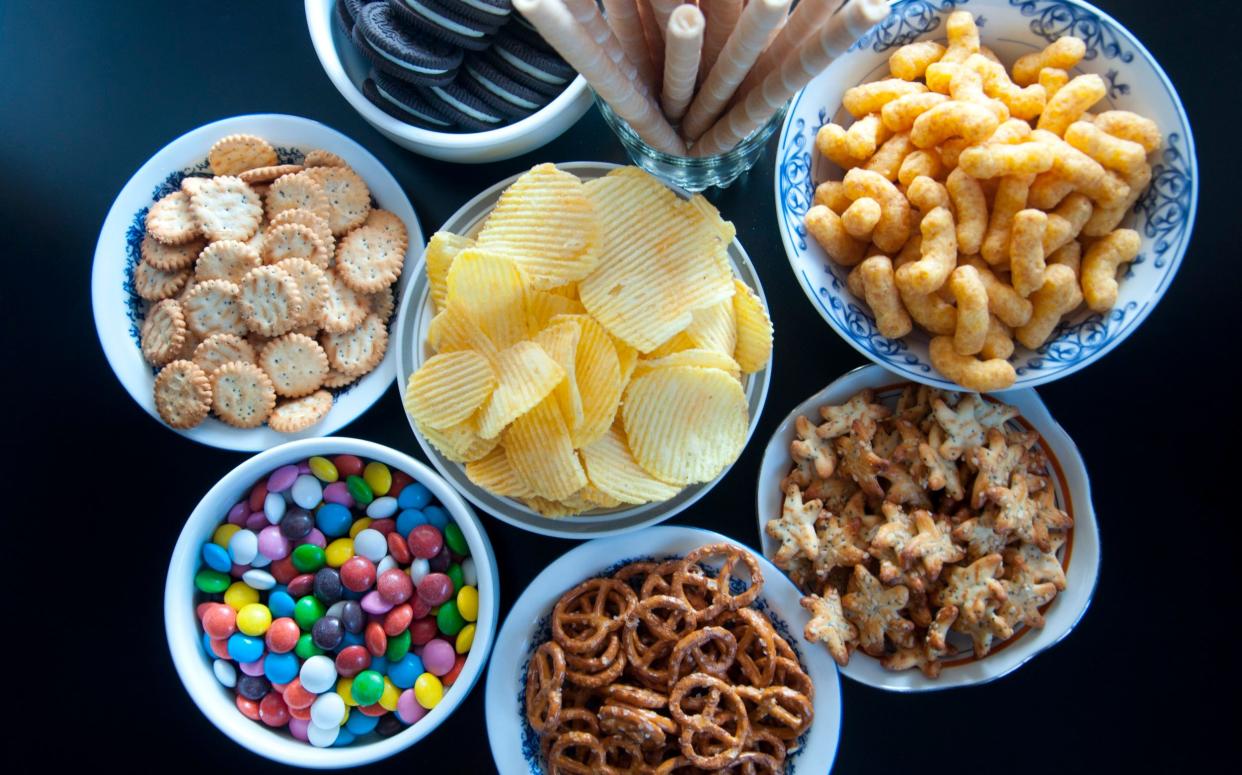Ultra-processed foods have become ‘normalised’ in children’s diets

Ultra-processed foods (UPF) have become normalised in the diet of children, experts have warned in a Government-commissioned report.
A report from City, University of London found ultra-processed foods have become a staple of children’s diet in the UK as well as fatty, salty and sugary items.
UPF is a term for anything that could not be easily made in a domestic kitchen with the definition being food made from “industrial formulations”.
This includes ice cream, ham, crisps, mass-produced bread, breakfast cereals, carbonated drinks, fruit-flavoured yoghurts and instant soups.
Other examples include pigs in blankets, stuffing, chocolate and biscuits.
Long-term risk of obesity
Some experts believe the wide category of foods is being unfairly demonised and can offer a route to a balanced diet. Other scientists are trying to limit consumption and restrict access to such foods, especially in childhood, warning of health concerns.
The report found children face similar risks to adults from a high intake of UPFs, which includes long-term risk of obesity, type 2 diabetes and some cancers.
The UK is one of the world’s biggest consumers of UPFs – which account for more than half of the calories eaten by the average British person.
Obesity costs the NHS around £6.5 billion a year and is the second biggest preventable cause of cancer and one in four people in England are obese.
Dr Paul Coleman, a study author, told The Guardian: “Consumption of UPFs is normalised and integrated into our diets from an extremely early age, with many infants consuming ultra-processed baby pouches, purees and smoothies from as young as six months.”
He added that this is “extremely worrying” because the eating habits and tendencies learned in childhood often translate up into adulthood.
Low-income families consuming UPFs
The report also found that ultra-processed foods are more common in the diet of children from poorer backgrounds as higher prices have driven fruit and vegetables “out of reach” and the offers of processed foods makes them seem more affordable.
“Policy interventions are urgently needed to increase access and appeal of healthy foods,” the report states.
Healthier snacks are around three times the price of processed alternatives on a calorie for calorie basis, the analysis found.
First author of the study, Charlotte Gallagher Squires, from the Centre for Food Policy at City, University of London said: “Our research shows how families on higher incomes have greater resources to avoid the least healthy retail settings and continually expose children to fruit and vegetables.”
Dr Coleman added that low-income parents have “little option but to buy unhealthy options” even when they know the food is bad for their child’s health.
“It is also clear from our research that many parents are purchasing ultra-processed snacks that are branded as ‘healthy options’, despite them containing a similar nutritional content as traditional ‘unhealthy’ snacks,” he added.
“This means that parents are often making well-intended purchasing decisions and think they are providing ‘healthy’ snacks to their children, when in fact the snacks provided often exceed recommended daily intakes of sugar and salt.
“We urgently need greater regulation of these misleading front-of-pack claims, particularly on products aimed at toddlers and children.”
‘We need to be driven by science’
The researchers called on politicians to bring forward plans to ban junk food adverts until after 9pm as well as banning buy-one-get-one-free deals on UPFs. These plans were delayed until October 2025.
Experts have previously argued that the processing of food is not inherently bad and that it is often the high salt, sugar and fat content that is harmful.
Prof Robin May, chief scientific adviser at the Food Standards Agency, said in September: “It’s really important that we don’t throw the baby out with the bath water.
“Many components are there for safety reasons. Additives that reduce the growth of bacteria or fungi have a really critical role in protecting consumers and extending the life of a product.
“We need to be driven by the science base and not have a knee-jerk reaction which treats everything the same.”
A government spokesman said: “The Government is helping young people live healthy, active lives by funding the distribution of 420 million pieces of fruit and vegetables to younger school children each year and delivering dramatic reductions in the amount of sugar in children’s foods like breakfast cereals, yogurts and fromage frais, through our voluntary sugar reduction programme.
“We have introduced calorie labelling on menus in restaurants, cafes and takeaways, and we are restricting the placement of less healthy products in shops and online – for example near cashiers – to reduce the likelihood of unhealthy impulse purchases.”
The study is published in the Proceedings of Nutrition Society journal.

